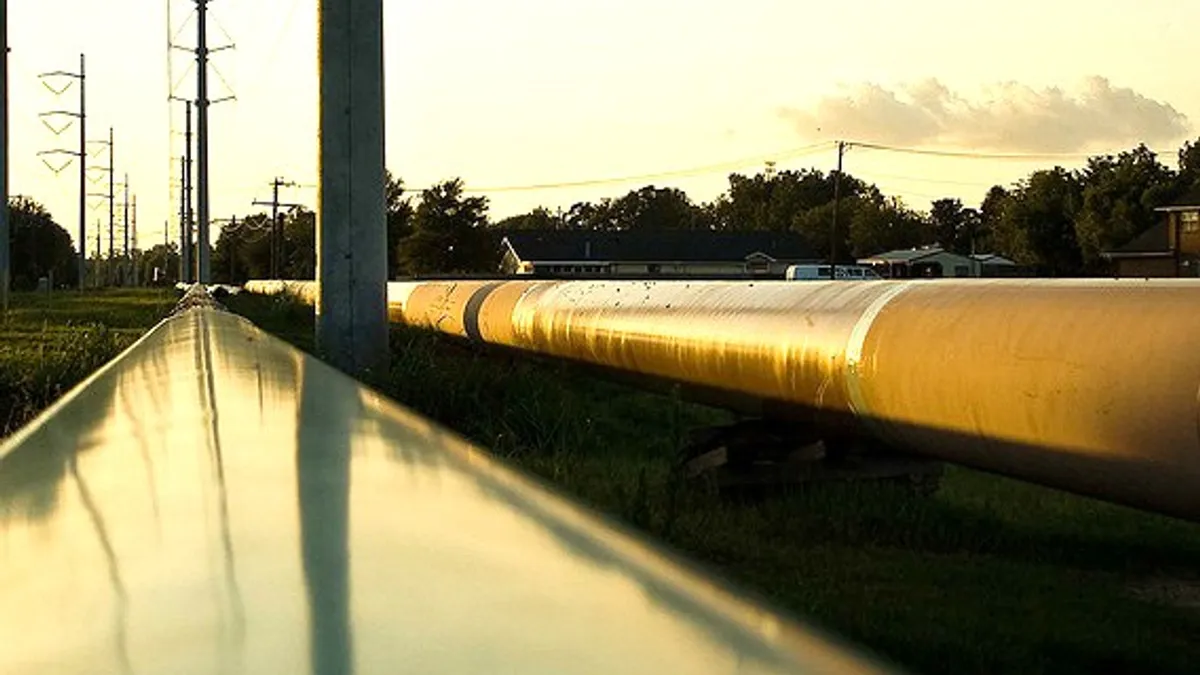Dive Brief:
- The Charleston Gazette-Mail reports more water violations have been found along the route of Energy Transfer Partners' Rover Pipeline in West Virginia.
- The news comes about two weeks after the state's Department of Environmental Protection allowed ETP to resume construction on the line after the company corrected similar violations.
- The Rover pipeline will transport up to 3.25 billion cubic feet/day of natural gas to markets in the Midwest, Northeast, East Coast, Gulf Coast and Canada. The pipeline is expected to be operational in November.
Dive Insight:
Are new work stoppages in the cards for Rover Pipeline? The Charleston Gazette-Mail says so far the DEP has declined to comment, but the company is aware of the violations.
At sites in Hancock and Marshall counties, inspectors found a failure to properly control erosion and incorrectly- installed sediment control devices. An ETP spokesperson told the newspaper that the company is working with state regulators to fix any issues. At the time, construction continues on all segments of the pipeline.
The Rover Pipeline will gather gas from processing plants in West Virginia, Ohio and Pennsylvania for delivery to the Midwest Hub near Defiance, Ohio.
Almost 70% of the gas will be delivered via interconnects with existing pipelines in Ohio and West Virginia. About a third of the gas will be delivered to markets in Michigan through an interconnect with the existing Vector Pipeline.According to ETP, domestic gas production is forecast to increase by 44% by 2040.
This is not ETP's only construction issue of late. In June, ETP subsidiary Sunoco Pipeline LP was ordered by Pennsylvania regulators to halt work on its Mariner East 2 gas pipeline project as part of a dispute over the location of a valve and other infrastructure. The company was allowed to resume construction on that line as well, after a settlement was reached with environmentalist groups in the state.















